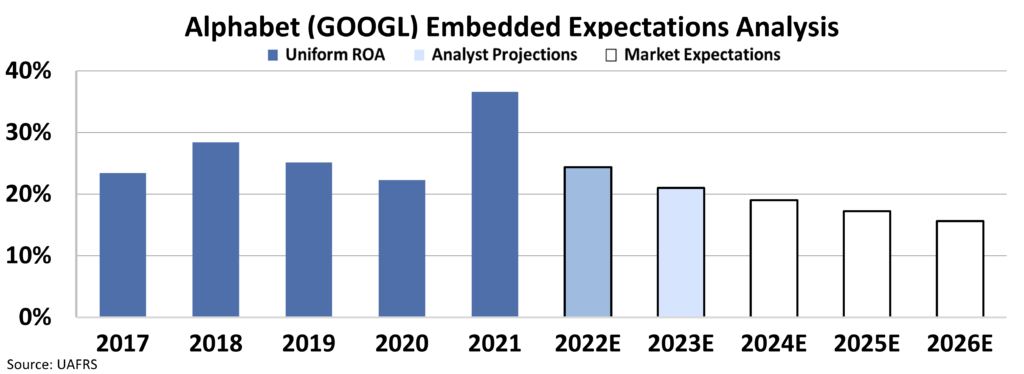 U.S. defense spending is a hot-button topic...
U.S. defense spending is a hot-button topic...
Defense makes up one of the biggest slices of the U.S. government's budget. And we have the largest military budget in the world by far.
The U.S. Department of Defense ("DoD") was allocated more than $720 billion in 2022. That's bigger than the next nine military budgets combined.
Most of this spending goes to military contractors like Lockheed Martin (LMT) and Northrop Grumman (NOC). They create products and provide services for the DoD.
But another less-discussed area has been raking in more U.S. defense dollars than ever...
Silicon Valley has become central to the defense industry. This is especially true since Ashton Carter became secretary of defense back in 2015.
Carter, who passed away about a month ago, built a strong relationship between the DoD and Silicon Valley. His vision was for the Pentagon to work with Silicon Valley to process artificial intelligence ("AI") and machine learning.
They've made a lot of progress in the past several years. Now, it may be time to kick things into high gear.
President Joe Biden has been ramping up the federal research and development budget. His latest proposal is for a massive $204.9 billion. That's 28% higher than last year.
That could mean a lot more DoD funding for Silicon Valley tech companies – and for one Big Tech giant in particular.
 Google parent Alphabet (GOOGL) stands to win big time from the increasing military applications of its technologies...
Google parent Alphabet (GOOGL) stands to win big time from the increasing military applications of its technologies...
In 2017, the DoD launched a project called "Project Maven" to integrate AI and machine learning into its defense strategies. Alphabet started out as a big contributor. (It eventually pulled out of the project due to employee protests over warfare technology.)
Despite the shaky start, Alphabet has continued to provide its products and services to the Pentagon in other areas.
Last year, the DoD announced plans to award $9 billion in cloud-infrastructure services contracts under the five-year Joint Warfighting Cloud Capability ("JWCC") program.
The program aims to let the military use commercial cloud services offered by these Big Tech companies. It could greatly increase the speed and scale at which the military shares its data.
Alphabet, Oracle (ORCL), Microsoft (MSFT), and Amazon (AMZN) are competing for the contract. The winner is set to be announced in December.
This is huge news for a downtrodden tech industry. This year has been tough on the sector. Companies like Alphabet that rely on advertising have been trying to fill the gaps wherever possible.
These types of major contracts can help stop the bleeding. Even better, they can provide a new revenue stream that can make the business stronger.
 And even if Alphabet doesn't win the JWCC contract, it can benefit in other ways...
And even if Alphabet doesn't win the JWCC contract, it can benefit in other ways...
The company is already proving that it can be a valuable resource for the military. It has some of the best AI programs around. And it's always developing new tools that could turn into contracts down the road.
We recommended shares of Alphabet to our Altimetry's Hidden Alpha subscribers back in May 2020. We're up 70% since then... yet the market still hasn't come around to the company's profitability.
That might come as a surprise, since Alphabet is one of the best-known Big Tech companies out there. Investors are likely getting distracted by the company's slowing ad revenue. It was a major factor in the company's disappointing third-quarter earnings.
YouTube ad sales declined 2% to $7.07 billion year over year ("YOY"). That was just shy of analysts' $7.1 billion forecast. Total advertising revenue rose 2.5% to $54.5 billion YOY... falling short of the $56.6 billion expectations.
Investors seem worried that the threat of a looming recession could keep hurting ad revenue.
We can see the full story through our Embedded Expectations Analysis ("EEA") framework. It uses Uniform Accounting to tell us what investors expect a company to do based on current stock price.
Alphabet's Uniform return on assets ("ROA") has been above 20% consistently since 2017. And yet, the market expects its Uniform ROA to fall below 16% by 2026.
Take a look...
Alphabet has been caught up in the broader tech sell-off. Shares are down 33% this year. Investors are scared... and they're missing the company's upside potential.
Alphabet is adding revenue streams, including from the DoD. That should boost returns, not drag them lower.
The stock has been unfairly knocked down this year. Defense spending is only increasing – and Alphabet is setting itself up as a key player in the emerging Silicon Valley defense program. It should have plenty of room to run as this trend continues.
Regards,
Rob Spivey
November 29, 2022



 U.S. defense spending is a hot-button topic...
U.S. defense spending is a hot-button topic...


